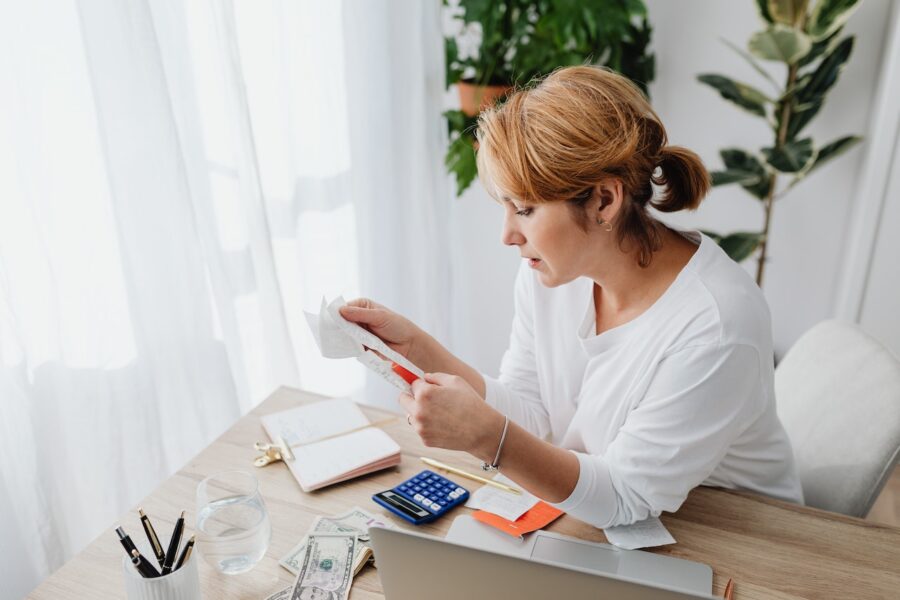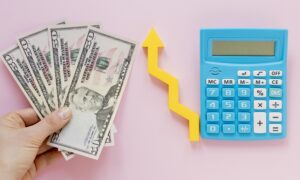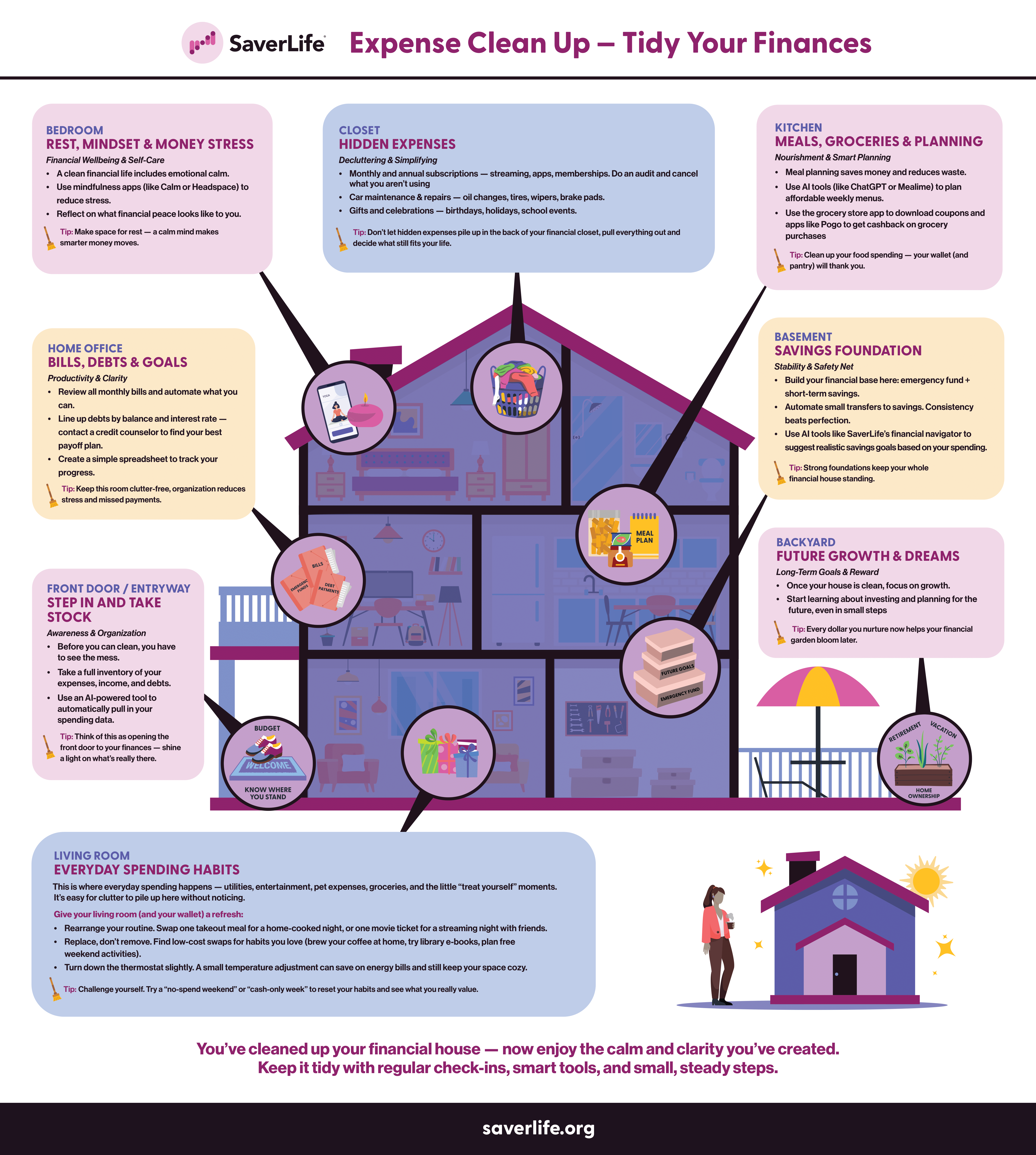
Money can be one of the biggest stressors in life. And at some point, each of us will feel money stress. In fact, according to a survey by Thrive Global, 90% of individuals surveyed said money has an impact on their stress levels.
Sometimes, stress around money is tied to an emergency or event that needs to be dealt with. But sometimes, the stress is more generalized and can lead to financial anxiety.
Financial anxiety, or money anxiety, is when you find yourself stressed and worried about your money situation. These worries could be related to a low income or high cost of living, but they could also be related to not feeling well informed or like you know “enough” to make financial decisions.
Symptoms of financial anxiety can be money-related, like worrying about paying your bills or being stressed when rent is due. They can also be like typical anxiety symptoms, such as difficulty sleeping, trouble concentrating, and feelings of general anxiety or depression.
Because financial anxiety is common and can affect so many parts of life, it can be helpful to know how to spot it so you can find solutions and start to feel better.
Here are 6 secrets you can use to spot financial anxiety symptoms.
#1: Pay Attention to How Frequently You Check In with Your Money
One of the most obvious ways you can spot financial anxiety is to pay attention to how frequently you check in with your money.
Typically, we all find a rhythm that works for us when it comes to checking in with our money and staying on top of it. But if you dread logging in to your bank account, you might be struggling with financial anxiety. For some, when money anxiety is high, avoiding it can temporarily lessen the anxiety.
While avoidance can be a symptom of financial anxiety, checking in all the time can also be a symptom. Individuals with money anxiety will sometimes think checking in “just to be sure” will help alleviate their anxiety. But if the balance isn’t changing, checking in too much can make financial anxiety worse.
It’s important to know where you stand with your money, but be mindful of how often you’re checking and how you feel when you do it. Checking in too little or too much can be an indication you might be dealing with financial anxiety.
#2: Look Out for Overspending
Another way to spot financial anxiety is to look out for overspending. It may seem counterintuitive that someone experiencing financial anxiety would tend to overspend, but it’s very common.
According to the Cleveland Clinic, right before you make a purchase, your brain releases dopamine, a neurotransmitter that makes you feel good. So, if you’re feeling stressed or anxious about your money, spending money can briefly help you feel happy.
However, once the dopamine from making a purchase wears off, you might feel guilty about it, making your anxiety worse. Then, you might find yourself spending more money to get another rush of dopamine to avoid the negative feelings. So, notice if you’re overspending. It might be a sign of financial anxiety.
#3: Look Out for Underspending
Like overspending, underspending, or not spending money to meet even your most basic needs, can be a sign of financial anxiety.
If you’re stressed or money is tight, it can be good to limit your unnecessary spending. But if you find yourself afraid to spend any money at all, no matter how much is in your account, or you aren’t willing to spend money to meet your basic needs, you might be dealing with financial anxiety.
#4: Notice How You Talk about Money
How we talk about things in life often is a good indication of how we’re feeling about them. This is true for money. If you’re constantly talking about what could go wrong with your money or your financial fears and worries, you might be experiencing financial anxiety.
Talking about your money struggles and asking for support is normal. In fact, it’s healthy. But always talking about how much things cost or the worst possible financial scenario isn’t helpful. Instead, it can cause you to feel unnecessary or increased financial anxiety.
#5: Be Aware of What Your Feelings Are Telling You
Your feelings can give you great insight into how situations in your life are affecting you. So, when looking to spot financial anxiety symptoms, it is important to be aware of what your feelings are telling you.
If you feel dread every time you log on to your bank account or when you have to pay your credit card bill, this could be a sign of financial anxiety.
Pay attention to your feelings, especially when dealing with money or money-related tasks.
#6: Pay Attention to How You Think About Money
Being mindful of our thoughts can give us a good indication of how we’re feeling and where our anxiety is coming from. To spot financial anxiety symptoms, be aware of how you think about money.
Do you find yourself worrying about money in the middle of the night? Do you think about money issues during your commute, when you’re with family, or during meetings at work? If your thoughts constantly go towards money and your worries surrounding it, you might be dealing with financial anxiety.
Noticing what you’re thinking can give you the ability to steer your thoughts in another direction or challenge yourself to determine if the thought is true. This can help break the negative thought loop and give you a more realistic view of your money situation.
Dealing with Your Financial Anxiety
It’s important to make sure your relationship with money is healthy. It touches nearly every aspect of your life. Having a healthy relationship with money doesn’t mean you’ll never experience financial worry or stress. Instead, it means that you’ll find ways to deal with your financial stress and get help with your financial anxiety.
If you do find yourself suffering from financial anxiety, there are a few practical steps you can take to deal with it.
- First, set up a reminder on your calendar for a weekly 15 to 20-minute check-in with your money. Then keep the appointment with yourself like you would an important meeting. During this time, review your spending from the past week, make sure upcoming bills are covered, and look ahead at other upcoming expenses. These regular weekly check-ins with your money can help relieve your anxiety.
- Second, create a spending plan that helps you manage your essential expenses each month. Having a plan for where your money will go can relieve uncertainty that contributes to financial anxiety. And, when you create this plan, be sure to factor in some fun and freedom. This way, you won’t feel too restricted, and you’ll be more likely to stick to your budget.
- Finally, if you need someone in your corner as you navigate your financial anxiety, don’t hesitate to reach out for support. Ask a partner, friend, loved one, financial advisor, financial coach, or Accredited Financial Counselor® (AFC®) to help you navigate your money. An outside perspective can help you spot symptoms of financial anxiety and take the necessary steps to manage them.


